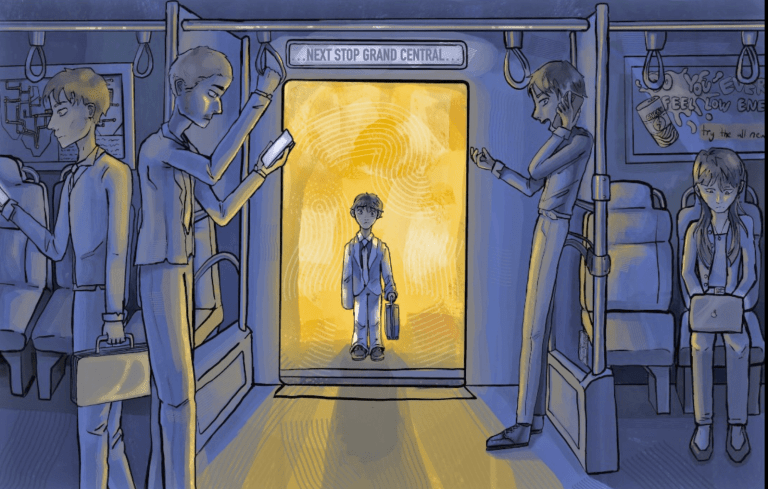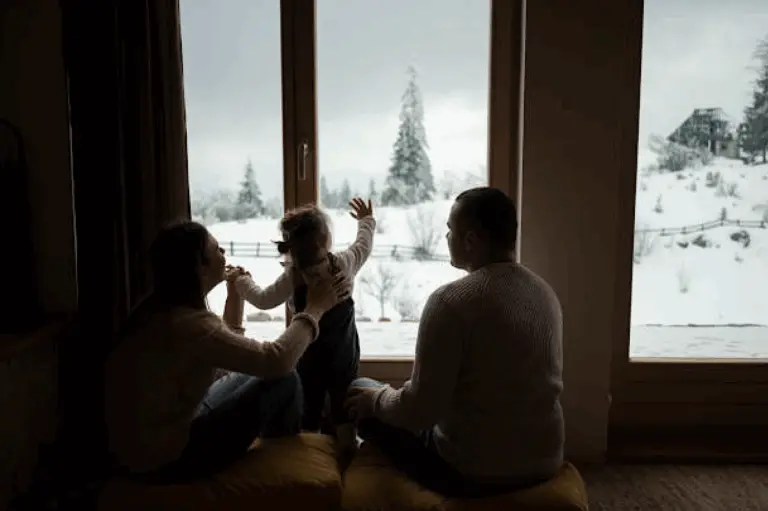By The Rev. Marek Zabriskie
One of the hardest stories in the Bible to comprehend is the story of the sacrifice of Isaac, where God commands Abraham to sacrifice his son, Isaac.
It is truly a text of terror. It is one of the most intriguing and shocking biblical stories and perhaps the most horrific tale for any parent found in the Bible.
I have a friend who is a rabbi who took a semester-long university course based on this one biblical story during his sabbatical. That demonstrates how significant this story is.
Jewish artists portrayed this story at Dura-Europas. The Early Christians painted depictions of it in the Roman catacomb of Priscilla and the Vatican grottos.
It appears in the cathedrals of Chartres and Verona and countless churches. Donatello, Cranach, Caravaggio, Rembrandt and countless others rendered this story on canvas. The British poet, Wilfred Owen, who will killed two hours before the Armistice was declared ending World War I, wrote a poem about it, and Benjamin Britain set his poem and this story to music.
The story begins with the words “God tested Abraham,” and Abraham humbly obeyed. Oddly, when God told Abraham that he was going to destroy Sodom and Gomorrah, Abraham tried to dissuade God in what is the longest dialogue between God and a human being recorded in the Bible. But when God commands Abraham to sacrifice his own son, Abraham merely obeys.
In fairness to Abraham, child sacrifice was common back then. Some peoples in the Ancient Near East believed that by sacrificing one’s firstborn child to the gods would make the wife and their crops more fertile.
The Jews refer to this story found in Genesis as the Akedah, which means “the binding” of Isaac. The story is meant to convey Abraham’s willingness to do what God commanded him to do. It was mitzvot or a deed or action in Hebrew that cemented Abraham and the Jewish people’s relationship with God.
Buy St. Paul later wrote that it wasn’t an action or mitzvot that earned Abraham God’s favor, but rather Abraham’s faith, his willingness to obey what God commanded, come what may, cost what it cost. Yet, such a faith is very troubling to us, if it means child sacrifice.
Abraham had Isaac carry the wood for his own sacrifice. Christians view this a foreshadowing of Jesus bearing his cross up Golgotha for his crucifixion, where God’s only Son was sacrificed for us. We can see the parallels.
The authors of the Midrash or Jewish commentary note that Isaac wasn’t a child, but rather was 37-years-old when the event occurred. Abraham was said to be 100 years old. Biblical numbers, however, must be taken with a grain of salt.
When they got to Mount Moriah, Abraham bound Isaac, laid him on the altar, and drew his knife to slay him, when an angel of the Lord called out to him, saying Abraham, Abraham. Abraham looked up and saw that a ram was caught in the brambles. Abraham realized that he could use the ram as a sacrificial offering to God and spar his son.
The Jewish Midrash on the text tells us that it was not the voice of God that alerted Abraham not to execute his son was actually the guttural cry of his wife Sarah.
Scholars have long believed that the purpose of this story was to inform the Israelites and others in the land of Canaan that child sacrifices were now forbidden.
Interestingly, the names of God change in this story. The God who instructs Abraham to sacrifice his son is called “Elohim.” But once the “angel of God” leaps to Isaac’s rescue God is referred to by the four-letter YHWH (Yahweh), a name so sacred that Jews traditionally do not utter it aloud. A major theological shift occurs behind how the Israelites now understand their God. Whereas Elohim may have permitted child sacrifice, Yahweh condemns it.
The event occured on Mount Moriah where the Jews built their Temple in Jerusalem. Then in 685, Muslims, who had conquered Jerusalem, built a mosque which is called the Dome of the Rock. It is the third most holy site for Muslims in the world after Mecca and Medina. Muslims believe that God instructed Abraham to sacrifice Ishmael, not Isaac, on Mount Moriah. Ishmael became the progenitor of the Arabs.
Whatever happened, this experience must have been incredibly traumatic for Isaac. The Bible notes that Abraham descended (Gen. 22:19) Did Isaac stay behind? The Bible recalls no words that Abraham and Isaac ever spoke after this event.
What did they share with Sarah, Abraham’s wife and Isaac’s mother? Did she recoil in horror from Abraham after hearing of this divine test? In the very next chapter Sarah died. It is almost as if the shock of what her husband nearly did killed her.
Isaac was the primary casualty that day. Was he traumatized after this event? After all, how do you reconcile the fact that your father was willing to kill you? After this event, the Bible does not record Isaac speaking again until he is on his deathbed. There are no other stories of Isaac’s adulthood. Could he not move forward in his life?
A mere two chapters after Abraham’s death, we read that Isaac was prematurely aged, blind, and dying. His existence seems blighted after his father bound him on an altar and drew his knife. Isaac was one of those millions of damaged children, who have experienced parental hostility. It should not be surprising that Isaac called God “the Fear” (31, 42, 53).
Indeed, Abraham seemed to have little faith in Isaac. As he lay dying, Abraham entrusted to his household steward the task of choosing a wife for Isaac. The steward was sent to Haran to choose a wife for Isaac from Abraham’s own family.
When Sarah died, we are told that Isaac grieved for a long time (Gen. 24:67), but, though he dutifully buried his father but we are given no indication about the feelings for his father.
The Danish philosopher Soren Kierkegaard wrote a book called Fear and Trembling, which was a philosophical meditation on Abraham’s sacrifice of Isaac. Kierkegaard saw Abraham as the “knight of faith” and a “knight of faith” has a higher obligation laid upon him than normal persons and this may involve what Kierkegaard called a “teleological suspension of the ethical” or operating on a higher plane than human ethics in order to carry out God’s.
Abraham did not know what that higher moral order was. All that he knew was God’s command to obey.
So, what does this story mean for us who would never dream of sacrificing one of our children?
On July Fourth, as we celebrated our nation’s independence, we recalled how 1.3 million American soldiers who sacrificed their lives for our freedoms. Nothing good in life comes without sacrifice. The Greatest Generation is called the Greatest because they truly knew firsthand the meaning of sacrifice.
Second, we sometimes unknowingly sacrifice our children and our spouses for foolish reasons on the altars called success, appearance or don’t rock the boat. Let me give you an example.
I had a father and son who had a great falling out in my first parish. The wife and mother asked if I could help. While the father was out of town on a business trip, their son cut off the roof of the car and transformed it into a convertible. The car sat outside. When the first storm hit, it was filled with three inches of rain.
When David’s father returned from his business trip, he was irate. After listening carefully to the father and son, I realized that the son didn’t want a car or anything else. What he wanted was a real relationship with his father. But his father was so busy working and making sacrifices to provide for his family that he was never around and had very little time for his son. Five thousand years after Abraham nearly sacrificed his son Isaac, some of us are still sacrificing our children and our families on the altar of success, financial security, or ego.
Rabbi Norman Cohen writes, “We are all like Abraham; so involved in our outside word – our careers, interests, or principles – that we do not or cannot see that it is our child, or spouse or parent that is bound on the altar. We are so adept at sacrificing that which is truly important to us on the altars we have erected that we may ask whether we are capable of hearing the cry of
the angel before it is too late.
Lastly, this story reminds us about what we think that we possess. The great preacher John Claypool was up late one evening preparing to preach a sermon on this very biblical text, when he lifted a book off his shelf by a famous biblical scholar named Gerhard Von Rad. It was a commentary on the book of Genesis.
Claypool was preparing to preach on this very biblical passage that we have been trying to comprehend this morning, when Von Rad’s writing helped him to see that God was testing Abraham to see if we still realized that everything that we had was a gift from God.
We are all tempted to take the things that we are given or have earned by using our God-given gifts and to think that everything that we possess is actually ours. But a shroud has no pockets. We can take nothing with us to heaven. Not even a penny. When we leave this life on earth, all that we have shall be taken from us and given to someone else.
Therefore, Claypool noted that every gift that we have would make a nice present for someone else. The key to joyful living in this life is to hold onto things lightly and to share them with God and with others. These three lessons about sacrifice and giving are worth remembering.
The Rev. Marek Zabriskie is Rector of Christ Church Greenwich and passionate about teaching the Bible.




